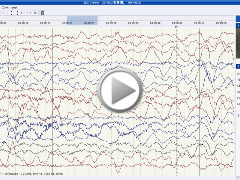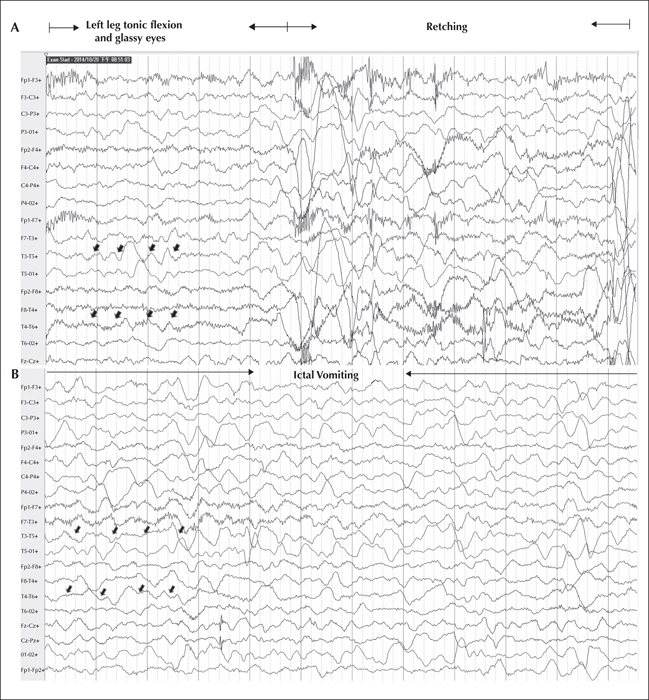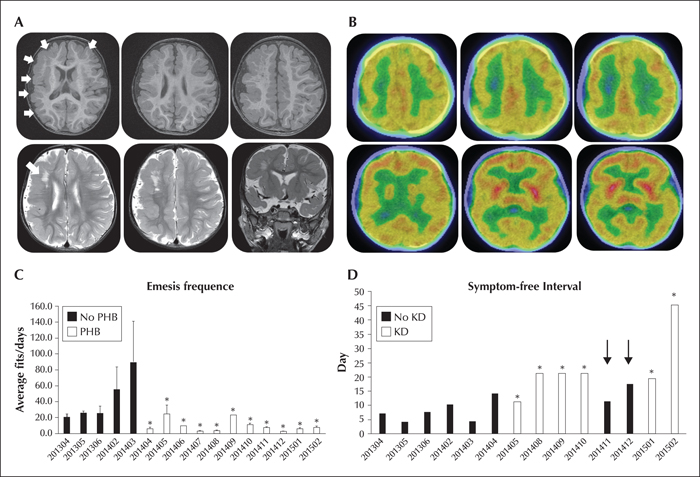Epileptic Disorders
MENUIctus emeticus presenting as an unusual seizure type in chromosome 22q11.2 deletion syndrome Volume 19, numéro 1, March 2017
- Mots-clés : chromosome 22q11.2 deletion syndrome, ictus emeticus, bilateral polymicrogyria
- DOI : 10.1684/epd.2017.0899
- Page(s) : 76-81
- Année de parution : 2017
We present a case study of a patient with chromosome 22q11.2 deletion syndrome presenting with ictus emeticus, together with a review of the relevant literature. The patient developed generalized tonic-clonic seizures at 3 months old, and seizures eventually remitted after calcium therapy. He then experienced vigorous vomiting that occurred during sleep, with glassy eyes and legs flexion. Video-EEG recordings exhibited a switch in background activity from organized reactivity during normal sleep to left lateralized temporal delta activity, which was bilaterally synchronized during an emetic attack. The ictal vomiting ceased following management with oxcarbazepine, high-dose phenobarbital, and a ketogenic diet. The unique seizure type and rare ictal EEG findings are the first reported in a child with chromosome 22q11.2 deletion syndrome. This case highlights that ictus emeticus without detectable epileptic discharge on EEG is one potential epileptic presentation in this genetic syndrome. [Published with video sequence on www.epilepticdisorders.com]




